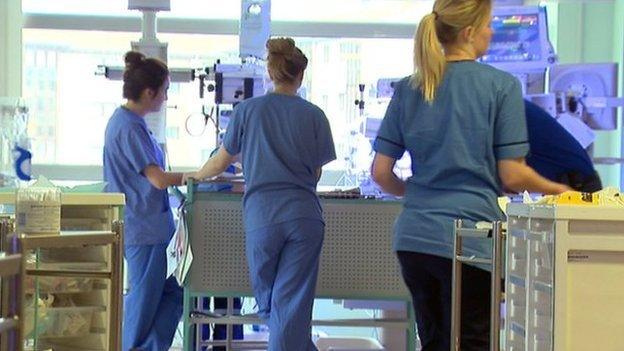Wales low pay worry for women in part-time work
- Published
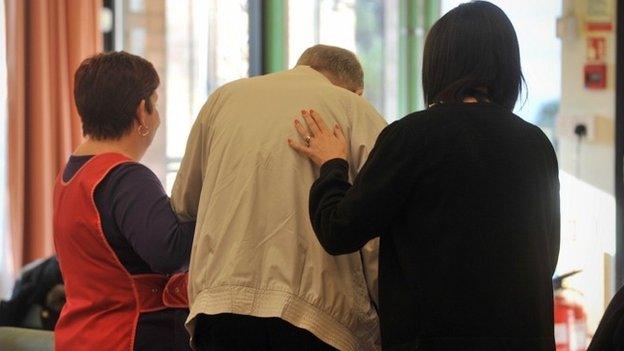
Women often find themselves in part-time, low-paid work which does not use their skills, the TUC claims
"Poverty pay" is a reality for more than 40% of women working part-time in Wales, union campaigners have claimed.
Dwyfor Meirionnydd and Alyn and Deeside are named as constituencies where more than 70% of such women earned less than the living wage of £7.85 an hour.
Swansea East had the best record at just over 30%, according to the TUC.
Wales TUC national officer Julie Cook said: "Our labour market is failing to deliver for many women."
Cost of living
She added: "Those looking to work part-time or on a flexible basis are too often restricted to low-level and low-paid positions that do not make the most of their skills."
The trade unions' body released its analysis to mark Part-time Equal Pay Day.
The Living Wage Foundation, part of the charity Citizens UK, claims the statutory minimum wage - currently £6.50 an hour - is not enough to cover the basic cost of living.
Aspirations
Doctor Alison Parken of organisation Women Adding Value of the Economy (WAVE) said there is an assumption that many women choose part-time work.
But while there is roughly the same amount of men and women employed in "lower end" work, Dr Parken said 75% of men are full-time and 75% of women are part-time.
She argued that part of the reason was the type of work chosen, with more women working in areas such as leisure, care, administration and cleaning that typically offer part-time roles, and men as grounds people, caretakers and park attendants that are full time.
"Many of these jobs that typically women do are undervalued and not seen as of huge value. There is little investment in training and some get stuck there even though they do want to progress," she said.
Dr Parken called on employers not to assume that part-time women workers do not have aspirations to progress.
Pay gap
Official statistics for 2014 showed that just under a quarter of all workers and 15% of full-time workers in Wales earned less than the foundation's estimated living wage of £7.85 an hour.
The principle of a living wage has won support across the political spectrum, although its exact level and whether it should apply to public and private sectors have been matters for debate.
In his post-election budget in July, Chancellor George Osborne announced plans to replace the minimum wage with what he called a national living wage of £7.20 in April 2016, rising to £9 an hour by 2020.
Rhodri Evans, from the Federation of Small Businesses in Wales, said around half of its members paid all staff the living wage or more, but added: "Margins in some sectors mean that it will be challenging for some small businesses to pay staff the new National Living Wage."
CBI Wales Director Emma Watkins said the issue of equal pay should be put "firmly in the spotlight".
"We must focus on tackling the pay gap by providing the right careers advice in schools and boosting support in the workplace for career development," she said.
- Published2 November 2014

- Published13 July 2015
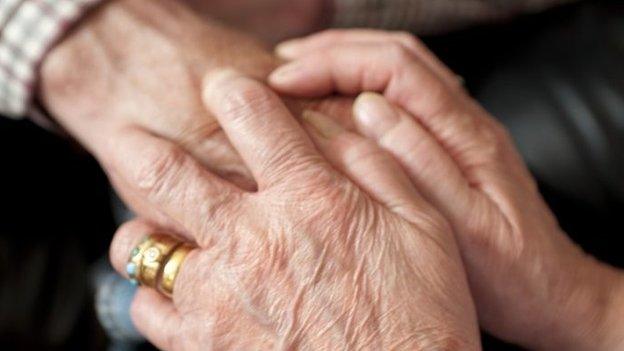
- Published8 July 2015
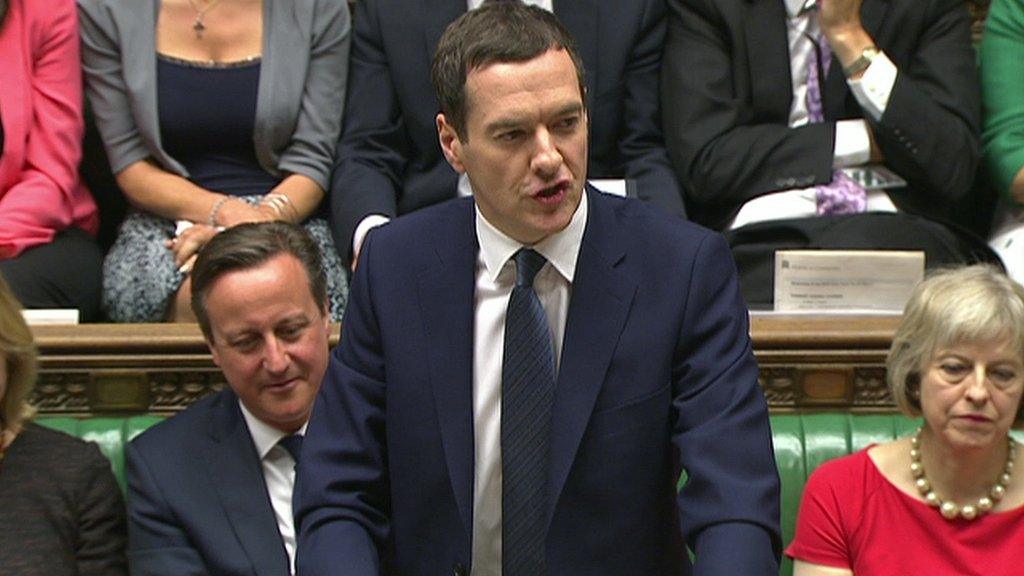
- Published28 February 2015
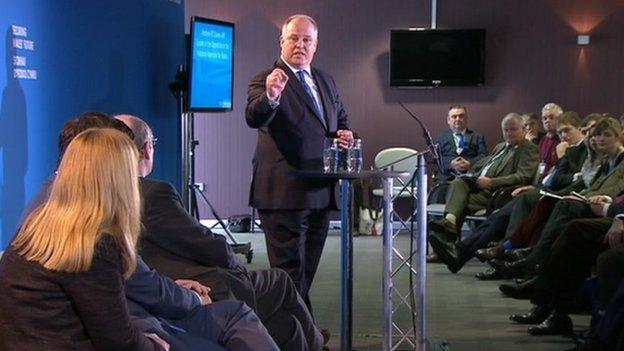
- Published7 January 2015

- Published1 January 2015
